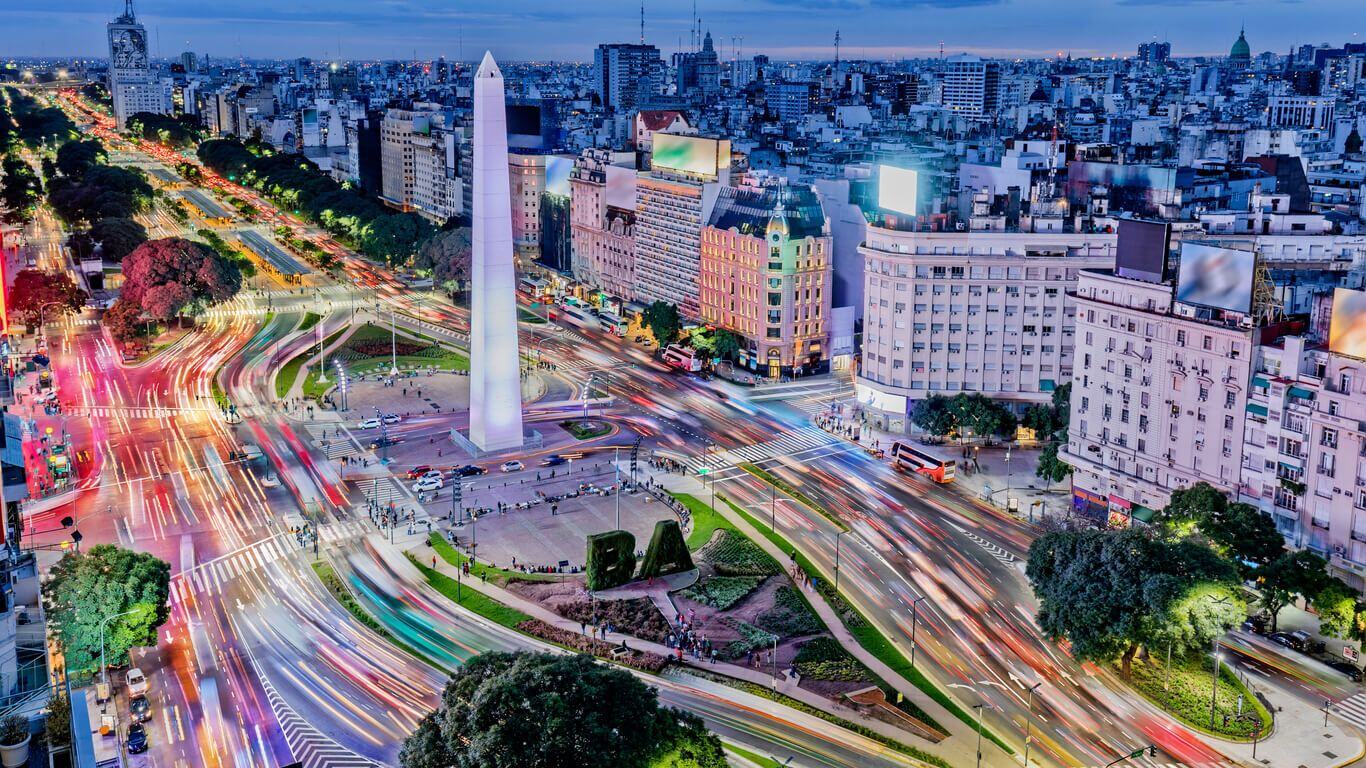Travel Money in Argentina
What is the official currency in Argentina?
The currency of Argentina is the Argentine Peso (ARS). One ARS is equal to 0.0046 GBP (as of 11th Jan 2023), meaning that you’ll get $219 ARS for £1. In Argentina, you will see the symbol $ to denote prices.
Note: You can check the Central Bank of Argentina for the ARS’s latest value against GBP.
Each ARS comprises 100 centavos. Centavos are available in eight different coins: 1c, 5c, 10c, 25c, 50c, $1 and $2. Meanwhile, ARS banknotes come in six denominations: $2, $5, $10, $20, $50, and $100.

Do I tip in Argentina?
Tipping is not mandatory in Argentina, but there is a cultural expectation that if you’re happy with the service, you’ll tip. It’ll go a long way towards keeping people happy, and ensuring you receive great service.
The general rule is that hotel staff and airport porters receive £1-2 per day, and in restaurants you would tip around 10% of the total cost of the meal. On tours, a tip of about £10 for the whole group will be greatly appreciated, as tour guides are generally very well educated and work hard to provide a good experience.

Using Cash In Argentina
In larger cities, cards are widely accepted, but if you’re going somewhere more rural, bringing cash is a good idea. It’s also useful to have cash on hand for tips. However, for your own safety you may want to minimise the amount of cash you bring. Having enough cash to cover emergencies is useful, but bringing too much can mean you’re more at risk of losing money, or being the victim of a crime.
Remember that you will likely get a better exchange rate by using a Caxton pre-paid travel card than by using your own debit or credit card.
How to use the Caxton pre-paid travel card?
You can transfer the rest of your holiday spending money to a Caxton pre-paid travel money card – for safe and secure spending.
Most international banks and card providers charge a fee for you to use their ATM machines. With a free Caxton pre-paid travel money card, you can open and access an account via our website or mobile app. Through either platform, you can top up your Caxton pre-paid travel money card and lock in favourable exchange rates – both ahead of travel.
If you bring your bank card on your trip as a backup option, remember to inform your bank about your travel plans prior to departure so that transactions aren’t identified as fraudulent. But be prepared to pay fees and high exchange rates, as is the norm with high-street banks.

The price of food and drink in Argentina
As a rough guideline, below is a list of the average costs of spending in a day in Argentina.
- Domestic beer = £1.45
- 7-day public transport pass in the bigger cities = about £12
- Inexpensive restaurant meal = £5.34
- Bottle of mid-range wine = £2.47
- Bottle of water (0.33 litres) = £0.66
What happens if my wallet is lost, stolen, or damaged in Argentina?
Argentina is a relatively safe country, although in bigger cities like Buenos Aires and Cordoba, you may be more likely to be a victim of petty crime. However, as long as you take normal precautions like not flashing your valuables around, you’ll most likely be perfectly fine.
Of course, this doesn’t mean that you shouldn’t be careful. If the majority of your cash is on your Caxton currency card, this will be automatically protected as you can instantly block your card on the app. If you need to contact Caxton, our details are:
For general enquiries
UK calls: 0333 123 1812
Outside the UK: +44 (0) 207 201 0526
However, in the worst-case scenario, here is a list of major debit/credit cards’ phone lines for you to call from outside the UK:
- HSBC Bank UK: +44 1442 422 929;
- NatWest: +44 1268 500 813;
- Lloyds: +44 1702 278 270;
- Barclays: +44 2476 842 099;
- Santander: +44 1908 216674.

The Cost of Tourist Attractions in Argentina
Argentina is one of the most geographically diverse countries in the world, with everything from beaches, jungles and deserts, to tall, snow-covered mountains.
Iguazu falls: The Iguazu river flows between Argentina and Brazil, with a whopping 275 waterfalls along the way. Considered one of the natural wonders of the world, this stunning location can be explored either on foot, or – if you’d like a private view – by helicopter. And with prices starting from £95, the birds-eye view just may be the better option.
Glacier tour: Argentina is known for its many glaciers, and while the Patagonia region may be somewhat difficult to get to, it’s well worth the effort. One of the glaciers, Petito Moreno, is unique in that unlike most other glaciers, it is still expanding. Located in Los Glaciares national park, Petito Moreno can be explored either by boat or on foot. The park is accessible by public transport, and boat tours, starting from £316, can be booked on the day.
Wine Tours: Another thing that may pop into your head when you hear Argentina is wine. The Mendoza region, west of Buenos Aires, produces two thirds of all Argentinian wine, particularly Malbec. There’s many options to explore the different venues, with a full day tour including lunch starting from £120.
History of currency in Argentina
The peso was introduced in Argentina by the Spanish, and since its introduction the country has been through many iterations of the currency. The current peso convertible replaced the Austral at a rate of ten million to one following periods of hyperinflation in the 1980s, but this was unfortunately not the end of their currency volatility. Since the mid-20th century Argentina has experienced periods of hyperinflation and severe devaluation, taking the peso from 1:1 with the US dollar in 1992, to 131:1 in July 2022.
Get your Holiday Money Delivered
Beat the queues with the Caxton Cash Delivery service. With next day cash delivery to your home and 58 different currencies, it couldn’t be easier to get your holiday money sorted. Simply Login to your Caxton account and select ‘Cash Delivery’ to get started.
Planning a trip to Argentina soon? Log into your Caxton account to top up, or learn more about how and why a pre-paid travel money Caxton card is your smarter, cheaper way to spend money when abroad.



